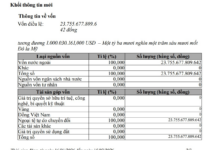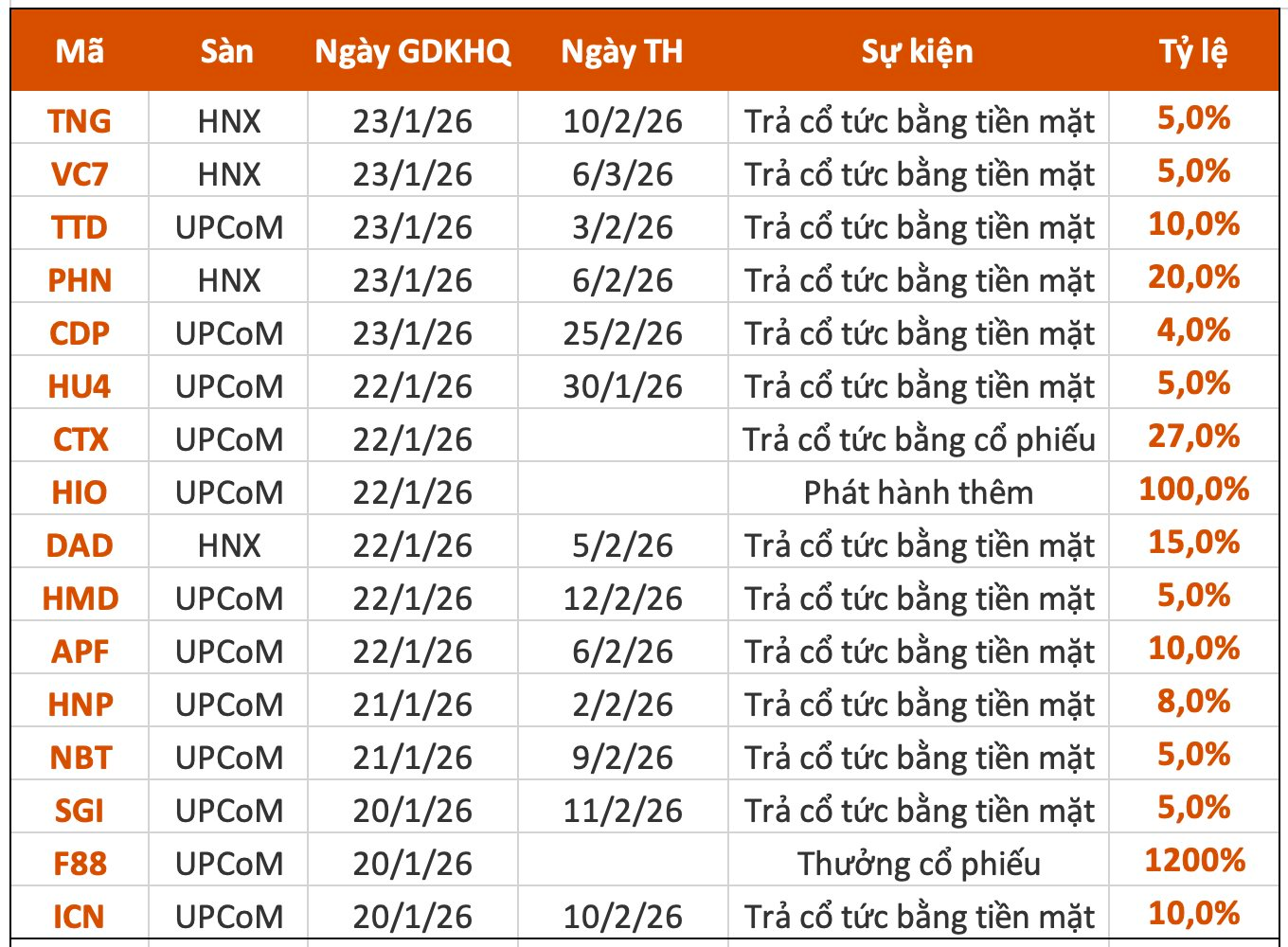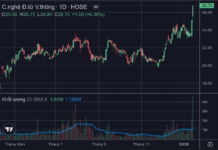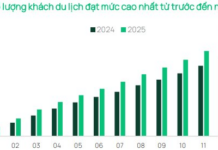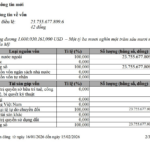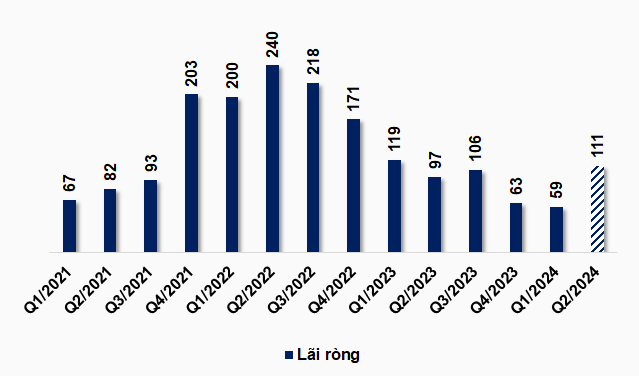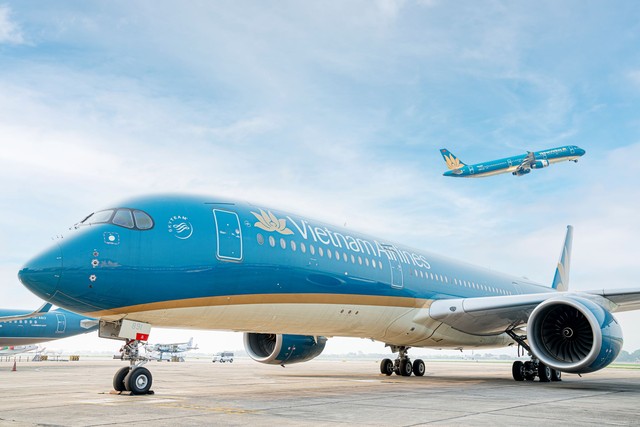
The Government Office has recently issued Document No. 51/TB-VPCP announcing the conclusions of Prime Minister Pham Minh Chinh at the working session with the State Capital Management Committee in Enterprises and 19 Economic Groups, state-owned parent companies on the implementation of production and business in 2024 and promotion of economic and social development investment.
In it, Prime Minister Pham Minh Chinh assigned the State Capital Management Committee to submit the overall plan for addressing difficulties facing Vietnam Airlines (HVN) due to the impact of COVID-19 in the period 2021-2026 in February 2024.
According to the Chairman of Vietnam Airlines’ Board of Directors, Dang Ngoc Hoa, at the company’s Annual General Meeting of Shareholders in 2023, the overall restructuring plan for Vietnam Airlines was shared. Specifically, he believed that the entire global aviation industry had been severely affected by the COVID-19 pandemic. Vietnam Airlines also suffered significant consequences and was unable to balance its revenue and expenditure in the period 2020-2022.
In 2023, the market also started to improve, and the business results were considerably enhanced. This was the basis for the company to develop a comprehensive restructuring plan. Vietnam Airlines invested lots of time in building this plan and reporting it to the management levels, government departments, and the Prime Minister.
The first content of the plan was to develop Vietnam Airlines’ internal strength. Regarding internal solutions, the company would carry out a comprehensive restructuring, including assets, capital sources, divestment of member units, labor organization for streamlining operations, land restructuring, and land use. In addition, the company would also implement restructuring in business administration and digital transformation.
“Vietnam Airlines is still submitting the plan to the appropriate authorities and hopes to receive the earliest approval from the Government. However, we will not wait for approval to take action but implement it immediately if we have the means,” said Dang Ngoc Hoa.
Currently, Vietnam Airlines is still facing many financial difficulties. By the end of 2023, the airline recorded a revenue of VND 91,458 billion (approximately $4 billion), an increase of nearly 30% compared to the same period last year. However, the company still suffered a net loss of over VND 5,800 billion (approximately $250 million), an improvement compared to the net loss of nearly VND 11,300 billion (approximately $500 million) in the previous year. This is also the fourth consecutive year that the aviation company has incurred a loss.
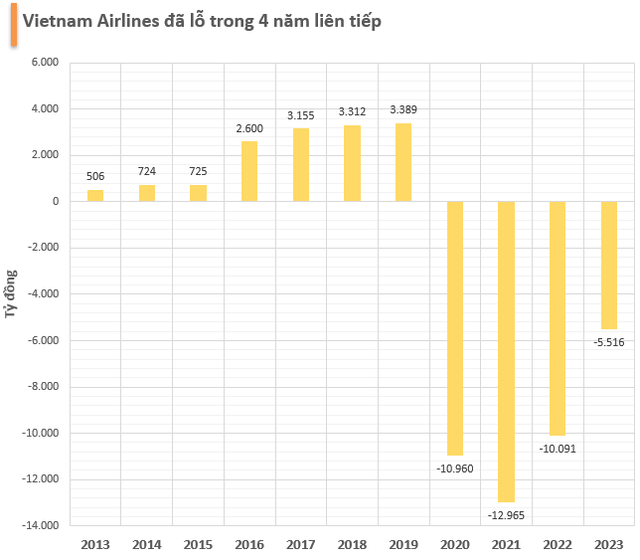
As of December 31, 2023, Vietnam Airlines had accumulated losses of nearly VND 41,000 billion (approximately $1.8 billion), resulting in negative equity of VND 16,945 billion (approximately $738 million). The company’s capital source is mainly funded by payable debt, with financial borrowings totaling VND 27,367 billion (approximately $1.2 billion).
Vietnam Airlines’ HVN shares are also at risk of being delisted as the company has reported losses for three consecutive years and negative equity.
During the aforementioned working session, Prime Minister Pham Minh Chinh also assessed that 2024 would still pose many difficulties and challenges. Therefore, he requested the 19 economic groups and state-owned parent companies, which hold significant national resources, to invest in development, expand production, and conduct efficient business. Additionally, financial targets, especially contributions to the state budget for economic growth in 2024, must be higher than in 2023.
To achieve these goals, alongside Vietnam Airlines, the Prime Minister requested the State Capital Management Committee to present proposals to the Government for the complete resolution of the Vietnam-China Steel Project and the Phase 2 expansion of the Thai Nguyen Steel Plant in March. He also requested a comprehensive restructuring plan for the Vietnam Expressway Corporation (VEC) and the Dung Quat Shipyard in the first quarter of 2024.
The Government assigned ministries to create favorable conditions and resolve legal obstacles related to taxes, land, real estate, and housing to enable economic groups and state-owned parent companies to invest and develop. The State Capital Management Committee was instructed to study and work with ministries to find solutions for businesses as soon as possible. The ministries were urged to cooperate in the spirit of national interest, without pushing, avoiding, disturbing, or confusing.
The Vietnam Electricity Group, the Vietnam Oil and Gas Group, the Vietnam National Coal-Mineral Industries Holding Corporation Limited, and the Vietnam National Petroleum Group must ensure a sufficient balance of electricity, petroleum, and gas for the economy in 2024.
In addition, the Prime Minister also required the Ministry of Industry and Trade to innovate the management mechanism of petroleum trading centers, reducing intermediaries and adjusting electricity prices accordingly. The Ministry was also tasked with submitting a new Government Decree on petroleum business in March. Furthermore, it should develop gas, wind, and solar electricity prices according to market mechanisms and submit it to the Government in the second quarter of 2024.












